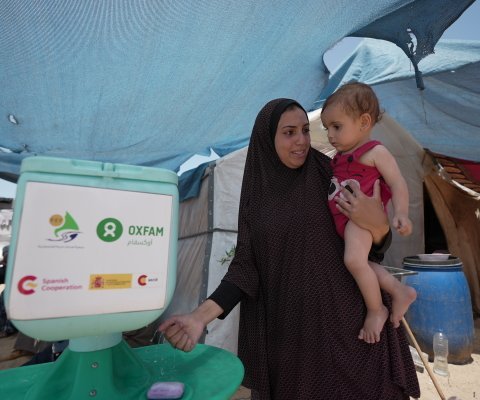Firm commitments from donor countries to finance the response to the food crisis in East Africa are not being made quickly enough, says international aid agency Oxfam.
The warning comes as the new UN special humanitarian envoy for the Horn of Africa, Kjell Magne Bondevik, travels to Kajiado in southern Kenya to see for himself the gravity of the situation.
Oxfam is calling on Mr. Bondevik to use his current visit to the region as an opportunity to push donor countries for a swifter response to an escalating food crisis that has put 11 million people at risk.
"Although some funding is starting to come through, the response so far is dwarfed by the immediate need," said Paul Smith-Lomas, head of Oxfam in East Africa. "Donors need to frontload their efforts so that action can be taken now. Money given in three months will be too late for many."
Latest figures from the World Food Program show that donor countries have committed just $18.7 million, or 8 percent of the $225 million food appeal the WFP launched two weeks ago to address the Kenyan food crisis.
There is also a $144 million shortfall in the appeal launched for Somalia, while in Ethiopia the current food appeal is still short of its goal by some $38 million. Oxfam estimates that at donors have committed $186 million to fund appeals for the three countries compared with $574 million requested, a shortfall of $388 million (68 percent).
Oxfam also calls on Mr. Bondevik to establish a strong mechanism to coordinate a regional response to the crisis. This will help avoid unbalanced interventions, which creates the risk of people relocating to where aid is distributed, thereby increasing tension and conflict due to competition for scarce resources.
The situation in many parts of the region is increasingly bleak. A recent Oxfam assessment team found that many livestock owners in southern Ethiopia have resorted to dismantling the thatch roofs of their houses to feed their animals. One elder, Buke Arero, told the team: "It's a dead end. The livestock have started dying from this drought, and now it is our turn."
Further exacerbating the situation is the real likelihood that the spring rains may be insufficient.
"The meteorological forecasts suggest yet another set of failed rains," said Smith-Lomas. "This would lead to a humanitarian catastrophe even worse than the current situation."
Malnutrition levels in parts of the northeastern Kenyan province of Wajir are more than double the 15 percent level at which the UN declares an emergency.
In Turkana, in the northwestern Kenya, food is so scarce that some families are surviving on wild fruit, squirrels, and insects.
Oxfam is responding to the food crisis in Ethiopia, Kenya, and Somalia by distributing food, providing water, and supporting the livelihoods of more than 500,000 affected people.
><p>


